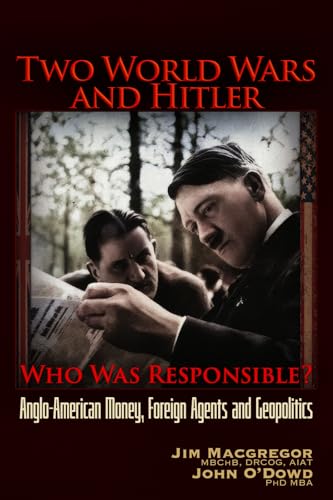
Feeding Occupied France during World War I
by Clotilde Druelle
"Herbert Hoover and the Blockade"
Popularity
2.98 / 5
* A book's popularity is determined by how it compares to all other books on this website.
Where to buy?
Buy from Amazon* If you buy this book through the link above, we may receive a small commission at no extra cost to you.
Feeding Occupied France during World War I by Clotilde Druelle
Details
War:
World War I
Perspective:
Researcher
True Story:
Yes
Biography:
No
Region:
Europe
Page Count:
364
Published Date:
2019
ISBN13:
9783030055639
Description
Main Themes and Topics
Feeding Occupied France during World War I by Clotilde Druelle delves into the remarkable history of the Commission for Relief in Belgium (CRB). The book meticulously documents the CRB's efforts to provide humanitarian aid to millions of civilians in occupied Belgium and Northern France during World War I. Among the central themes are the challenges of ensuring food security and the implementation of humanitarian aid in a war-torn region. Druelle highlights how these initiatives introduced revolutionary concepts like "humanitarian food emergency" and "humanitarian corridors," which have shaped modern humanitarian efforts.
The narrative explores the CRB's role not just as a supplier of goods but as a pioneering force in international relations. By facilitating aid despite the absence of formal political power, the CRB set a precedent for non-governmental organizations exercising moral authority on the global stage. The book also touches upon the emergence of American hegemony in the international arena, driven by the United States' leadership role in such humanitarian missions.
Writing Style and Tone
Clotilde Druelle offers a detailed and scholarly account of a little-known aspect of World War I. Her writing is characterized by its academic rigor and precision, reflecting extensive research and analysis. Druelle's tone is both informative and engaging, making complex geopolitical dynamics accessible to a broad audience. The author successfully combines historical narrative with analytical insights, allowing readers to grasp the significance of the CRB's work in the broader context of global diplomacy and humanitarian aid.
Brief Summary
The book scrutinizes the efforts of the CRB, focusing on their operations in Northern France. With millions of civilians dangerously close to starvation due to the Allied blockade, the CRB's activities were crucial in averting a humanitarian crisis. Druelle brings attention to the nuanced operations that defied wartime challenges, emphasizing the innovative approaches adopted by the CRB to bypass traditional diplomatic hurdles. This work sheds light on how the CRB's mission was not just about feeding starving populations, but about advancing a new form of transnational governance, with long-lasting implications for subsequent global aid initiatives.









